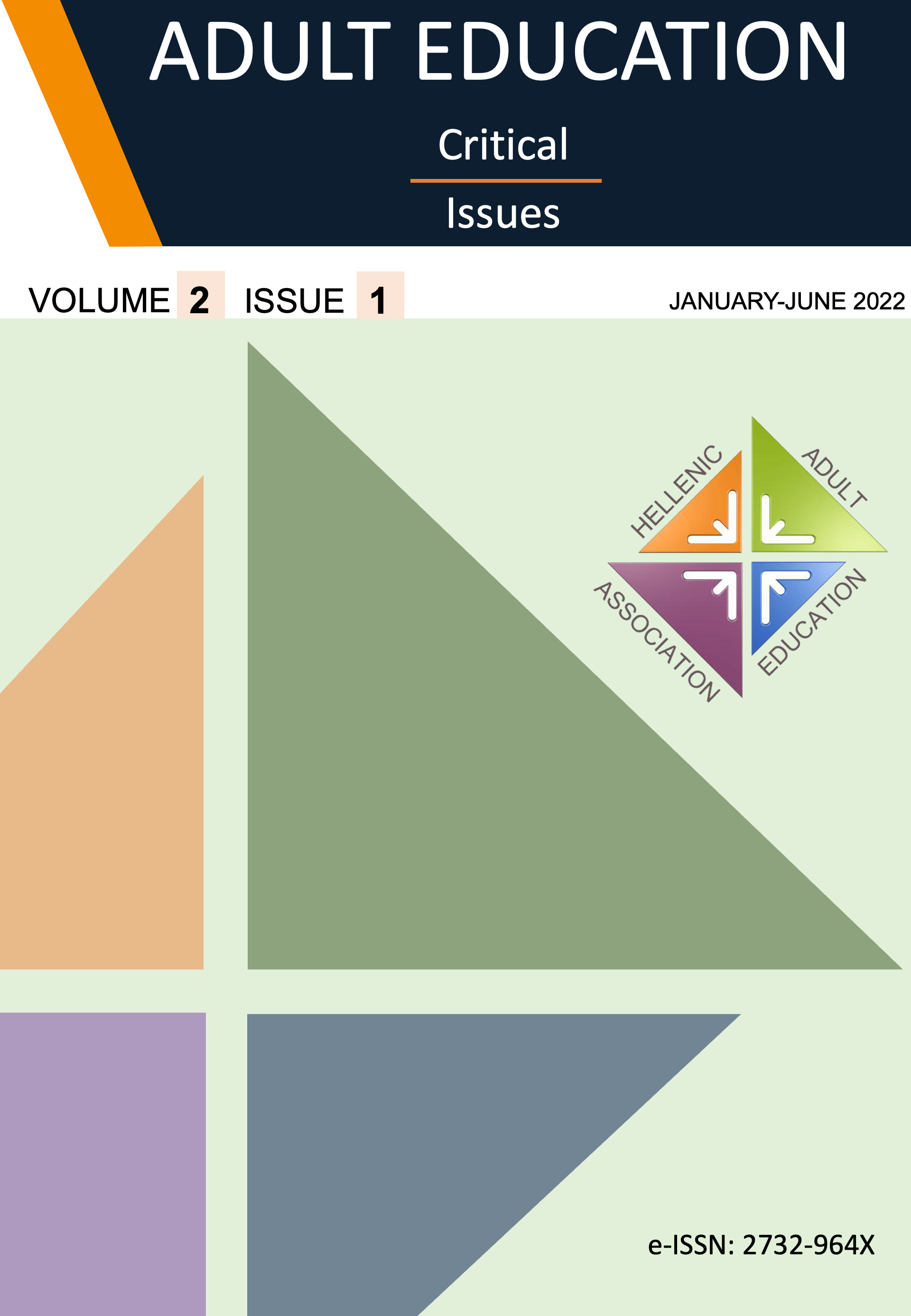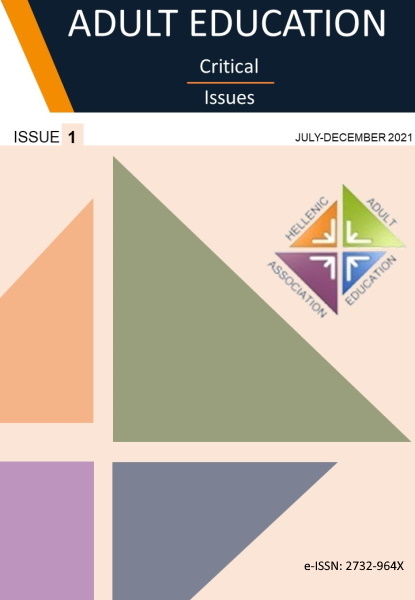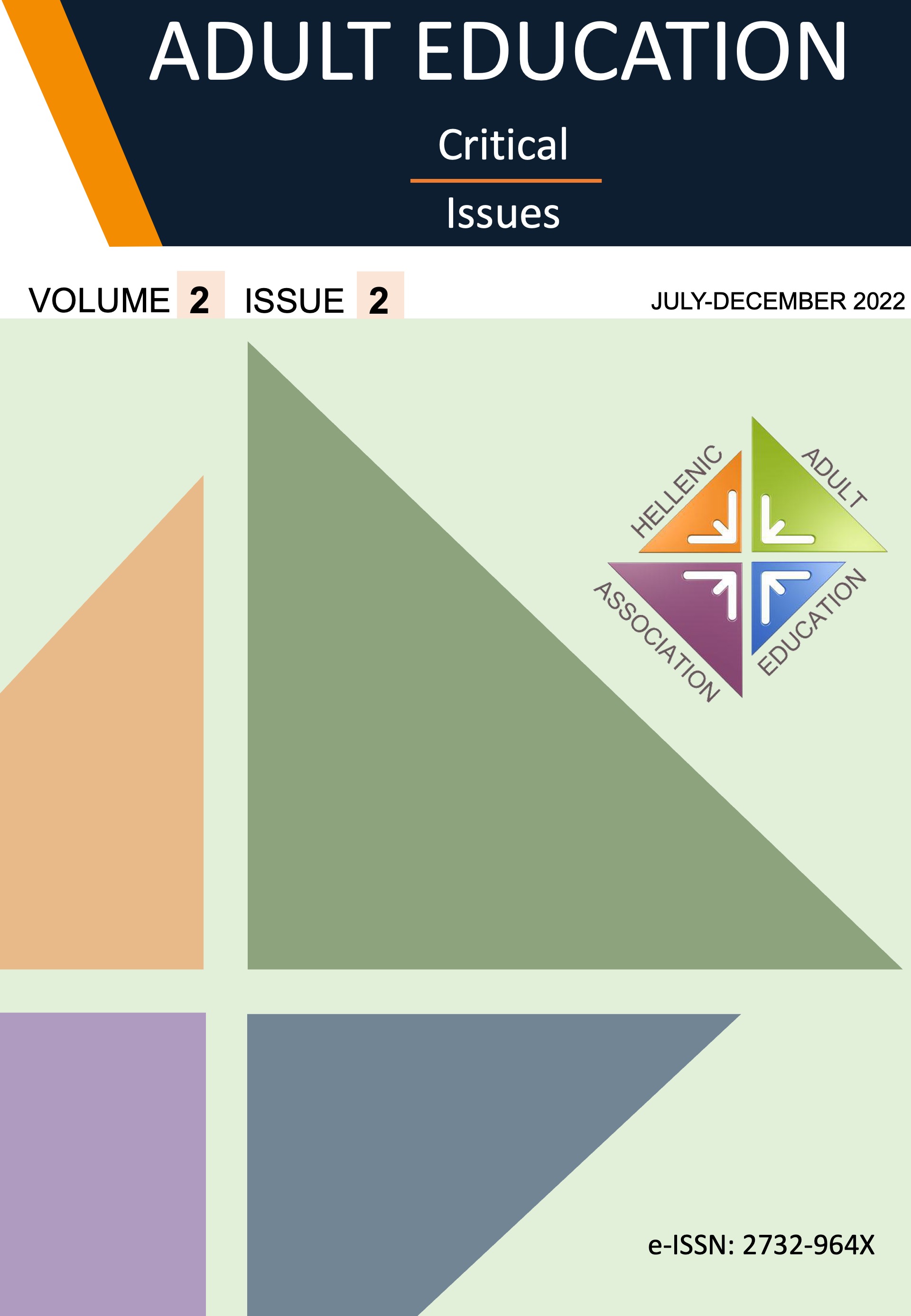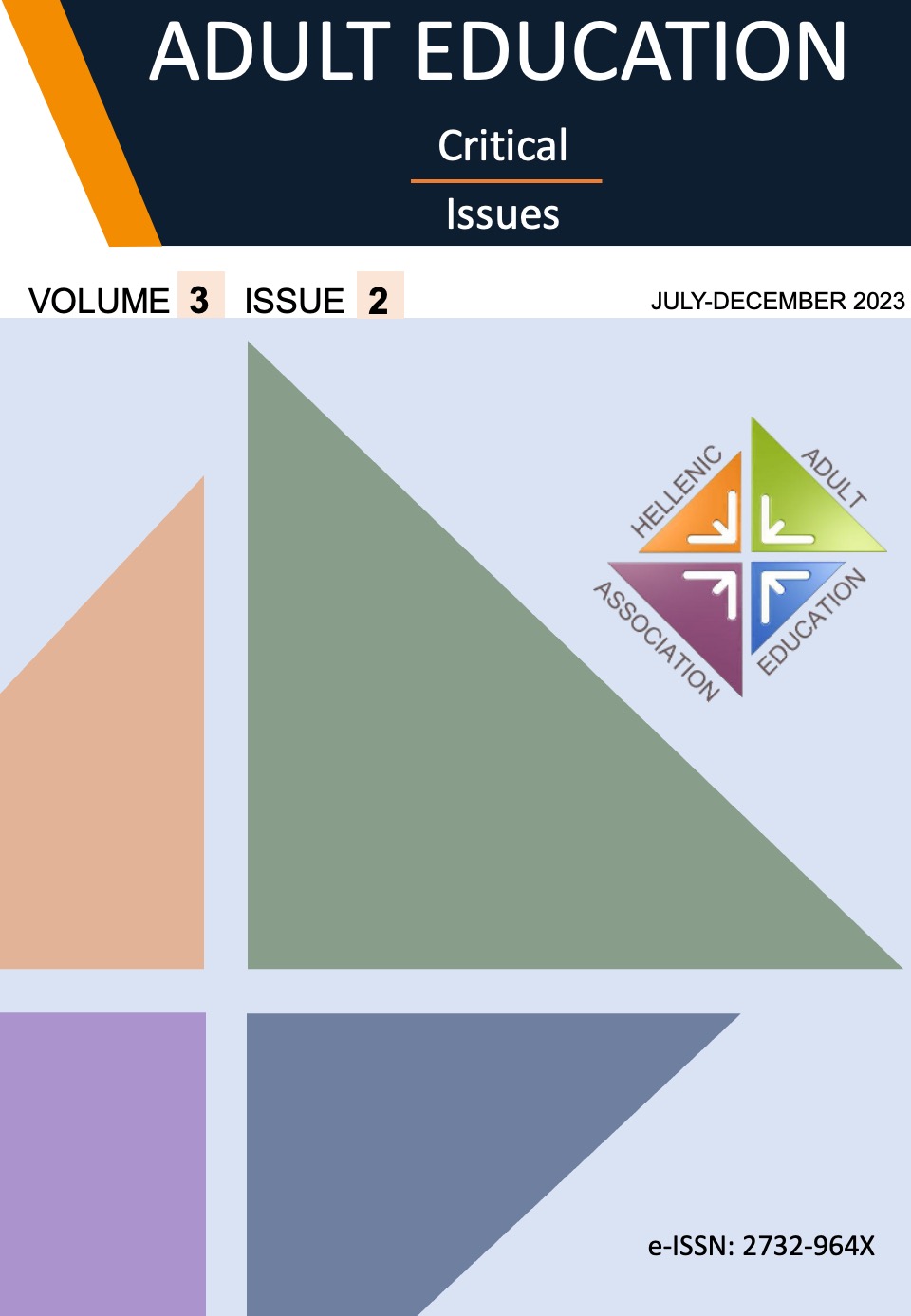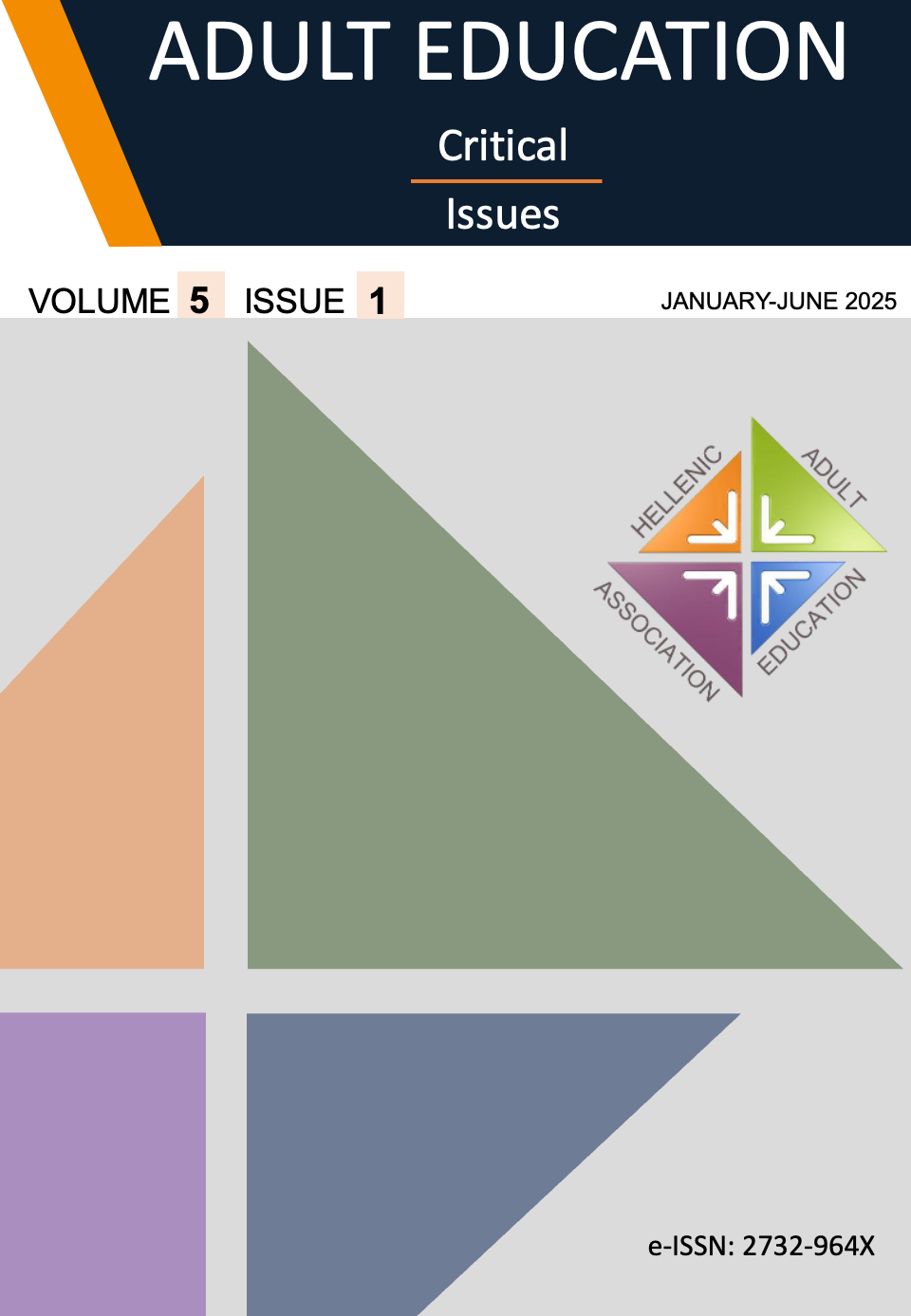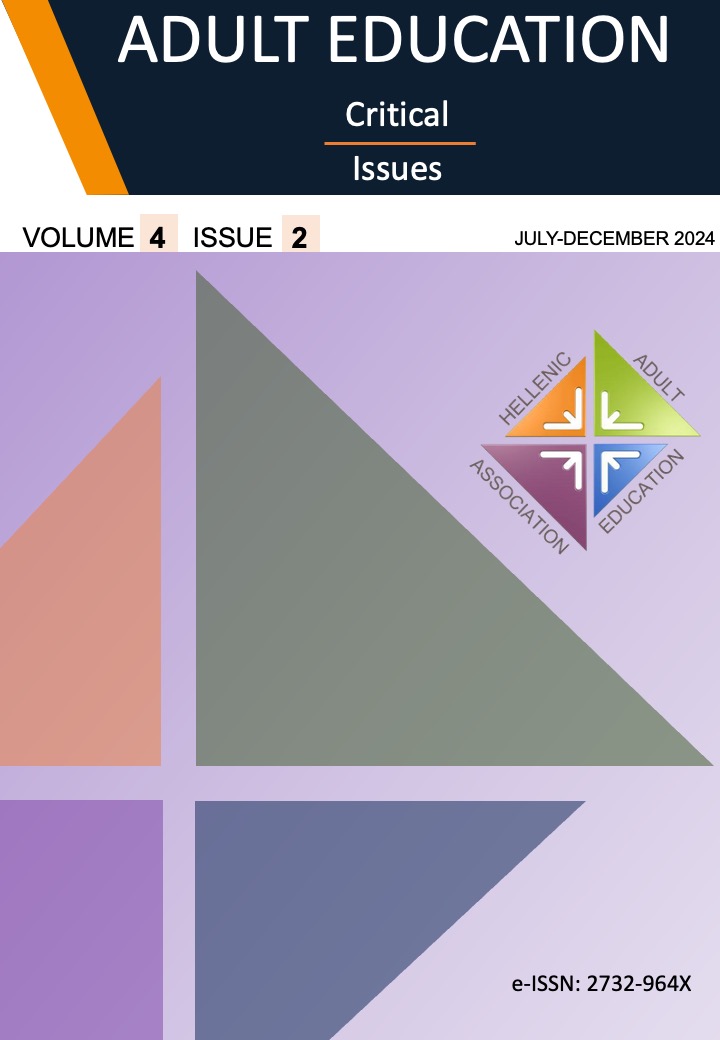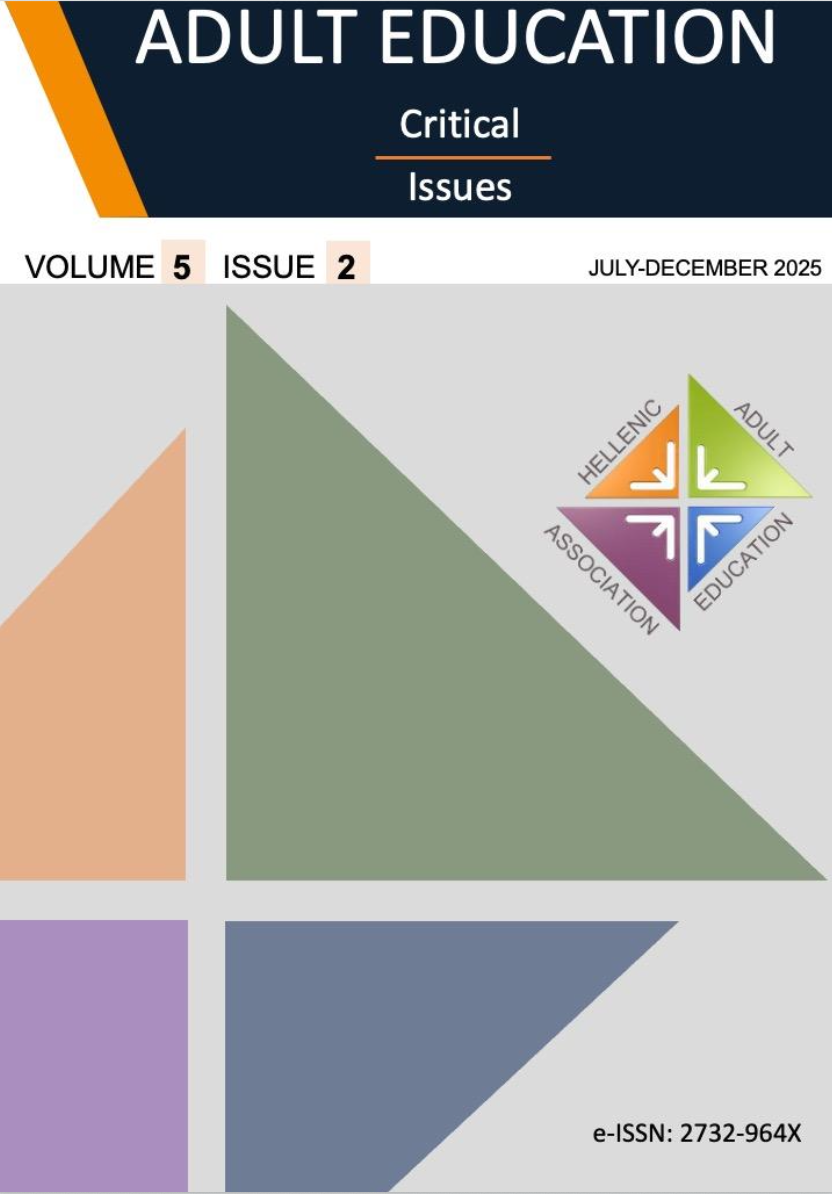Follow-Up: A Neglected Experiential Process within a Transformational Learning Community for Teachers as Adult Learners during the Pandemic
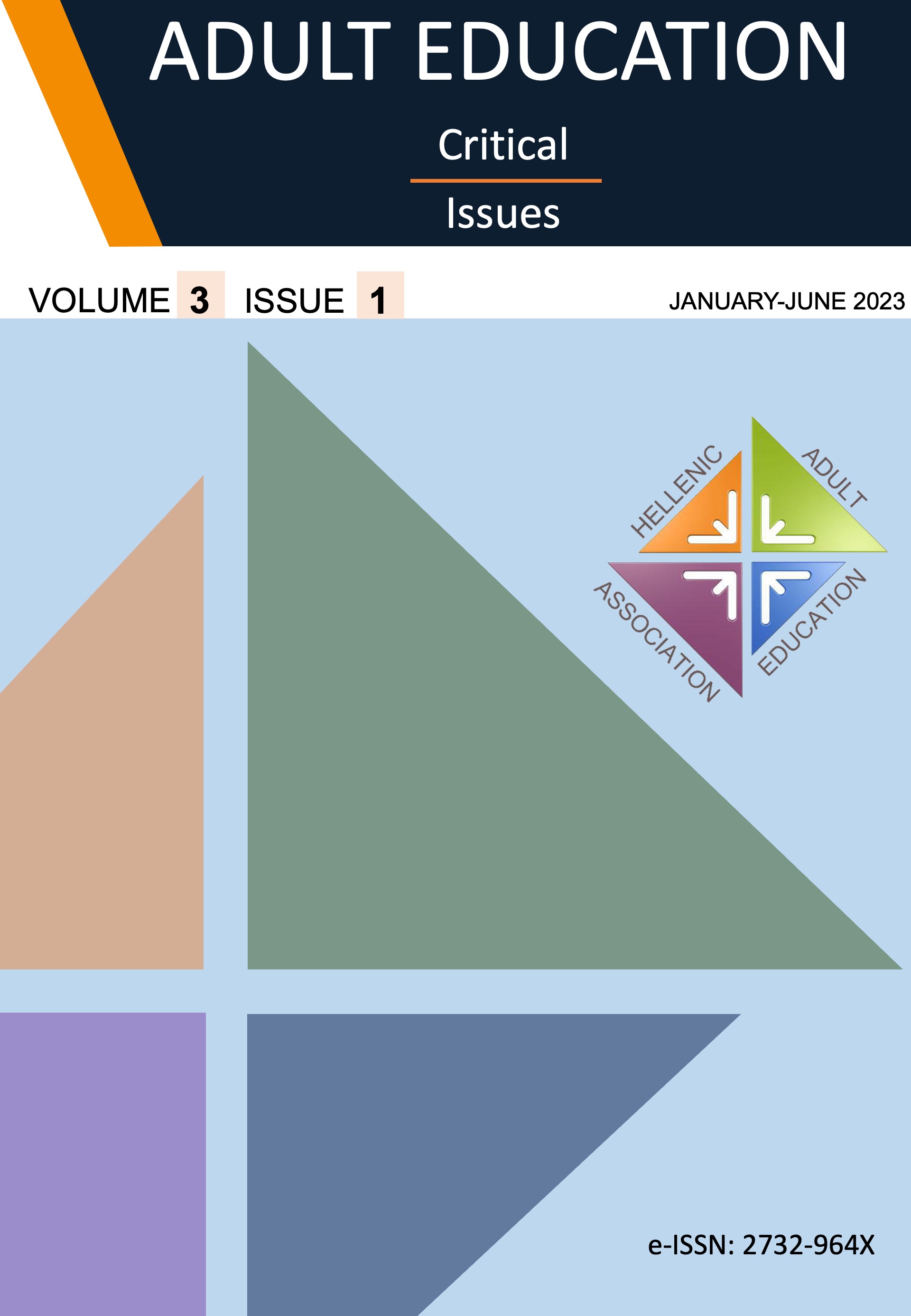
Abstract
This article refers to an effort to transform the views and attitudes of a group of teachers, who participated in a distance professional development program during the pandemic period, which was about the use of digital educational content in the teaching practice. The program adopted in its design and implementation elements from different models of professional development taking into account the educational needs of the participants as they had been expressed in relevant research that had preceded it. In terms of methodology, Mezirow's 10 steps of transformation were followed. The results showed a transformation of the perceptions and attitudes of the participants regarding the utilization of digital educational content in educational practice.
Article Details
- How to Cite
-
Tzovla, E., & Kedraka, K. (2023). Follow-Up: A Neglected Experiential Process within a Transformational Learning Community for Teachers as Adult Learners during the Pandemic. Adult Education Critical Issues, 3(1), 39–46. https://doi.org/10.12681/haea.34822
- Section
- Articles

This work is licensed under a Creative Commons Attribution 4.0 International License.
Authors who publish with this journal agree to the following terms:
- Authors retain copyright and grant the journal right of first publication with the work simultaneously licensed under a Creative Commons Attribution License that allows others to share the work with an acknowledgement of the work's authorship and initial publication in this journal.
- Authors are able to enter into separate, additional contractual arrangements for the non-exclusive distribution of the journal's published version of the work (e.g., post it to an institutional repository or publish it in a book), with an acknowledgement of its initial publication in this journal.
- Authors are permitted and encouraged to post their work online (e.g., in institutional repositories or on their website) prior to and during the submission process, as it can lead to productive exchanges, as well as earlier and greater citation of published work (See The Effect of Open Access).



